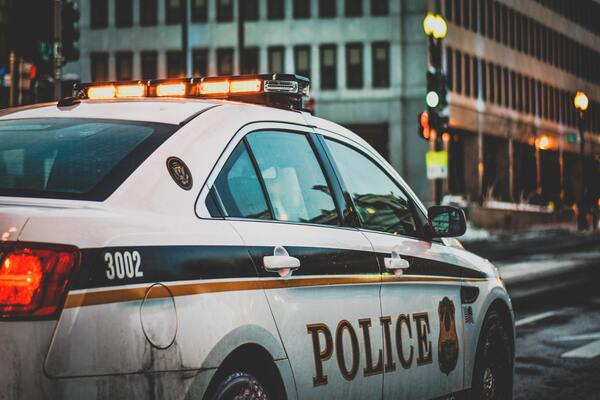Though it is not a uniform practice in the United States, DUI Checkpoints are legally acceptable in Florida. However, drivers are not legally required to interact with every DUI Checkpoint they encounter while traveling along a roadway. Understanding the legality of DUI Checkpoints in Florida will ensure that all drivers’ rights are maintained and protected.
Are Sobriety Checkpoints in the United States Legal?
Florida is one of thirty-eight states in the United States that has legalized the use of DUI Checkpoints on its roadways. These checkpoints are also commonly known as sobriety checkpoints. The intent is to screen drivers for signs of intoxication while operating a motor vehicle. Despite being an acceptable legal practice in Florida, the United States Supreme Court has ruled that requiring drivers to comply with DUI Checkpoints forcibly violates their fourth amendment right to remain protected from unreasonable searches and seizures. However, this ruling did not prohibit DUI Checkpoints by state law enforcement agencies so long as they are proven effective in maintaining safety.
To remain an acceptable legal practice without violating the Constitution of the United States, DUI Checkpoints must adhere to the following regulations:
- When conducting a DUI Checkpoint, the local law enforcement officers responsible for performing the stops and checks must do so based on the random selection of drivers.
- Local law enforcement officers must run the DUI checkpoint in a generally reasonable manner. This means that they must ensure that how they are conducting the DUI Checkpoint does not affect the location’s ability, surrounding traffic, and other motorists to use the roadways. Should a DUI Checkpoint be run unreasonably, it becomes illegal to conduct.
FAQ’s on Florida Sobriety Checkpoints
Laws surrounding driving vary across the US, and some states leave the law obscure. For these reasons, it is important to know one’s rights and how best to protect oneself.
Do You have to Pull-Over for a DUI Checkpoint in Florida?
Regarding the legality of DUI Checkpoints in Florida, drivers commonly wonder whether they are legally required to pull over for a DUI Checkpoint. As a rule, the answer to this question is no. Because the United States Supreme Court ruled that DUI Checkpoints violate the Fourth Amendment of the United States Constitution, drivers are not required to pull over for a DUI Checkpoint. However, stipulations regulate how their refusal to be searched and stopped can occur. It is within the legal right of drivers in Florida to turn around to avoid a DUI Checkpoint so long as they do so legally and per all driving laws. A driver who chooses to turn around to avoid a DUI Checkpoint but, in doing so, violates one or more state traffic laws will be pulled over and ticketed for their offense.
How is a DUI Checkpoint in Florida Conducted?
True to their purpose, law enforcement use checkpoints to conduct field sobriety testing among randomly selected drivers in Florida. When a driver encounters a DUI Checkpoint, they are approached by a law enforcement officer and asked to perform a series of tests to prove their sobriety. Suppose the law enforcement officer comes to the driver’s vehicle and suspects that the driver is under the influence of drugs or alcohol. In that case, it is within the officer’s authority to ask the driver to step out of the vehicle to conduct additional field sobriety tests. However, because DUI Checkpoints are conducted by law enforcement officers randomly, stops are conducted without probable cause. Therefore, drivers in Florida must understand their rights and how to exercise them when approaching a DUI Checkpoint.
What Rights Do Florida Drivers Have Approaching a Sobriety Checkpoint
Once a driver understands their right to avoid a DUI Checkpoint, it is vital that they also understand what rights they have when participating in a DUI Checkpoint. Ensuring that an individual is aware of these rights and understands the extent to which one can exercise them will ensure that drivers are not violating any laws that could get them arrested regardless of their sobriety.
- The Right to Remain Silent: The first thing drivers who have encountered a DUI Checkpoint should know is that they have the right to remain silent. Though it may sound simple, law enforcement will begin asking the driver questions as soon as they stop. Drivers can exercise their fifth amendment right to avoid any possible instance of self-incrimination.
- Drivers Can Turn Around: Under Florida Law, drivers stopped by a law enforcement officer at a DUI Checkpoint cannot be stopped for longer than three minutes while the officer conducts their sobriety test. If a DUI Checkpoint stop lasts longer than three minutes, the checkpoint will be considered unreasonable and subsequently violate the U.S. Constitution. Law enforcement officers are also required to notify drivers using proper signage of the approaching DUI Checkpoint. A driver who identifies signage of a checkpoint and wishes to avoid it may do so. However, they must follow all existing traffic laws while attempting to avoid the DUI Checkpoint.
The Implied Consent Law
Lastly, all licensed drivers in Florida should be aware of the Implied Consent Law. This law states that all drivers legally consent to chemical testing as soon as they begin operating a motor vehicle. This means that drivers who an officer stops and suspects are under the influence at a DUI Checkpoint cannot refuse to submit themselves to a breathalyzer test or blood alcohol level test without violating these laws. Because of this, drivers who refuse to partake in these tests will face legal penalties. In Florida, refusing a blood or breath alcohol test violates the Implied Consent Law is a misdemeanor charge. Individuals receiving a charge for Driving Under the Influence (DUI) will face additional penalties.
Contact Pride Legal
If you or a loved one has been involved in charges related to a DUI Checkpoint, we invite you to contact us at Pride Legal for legal counseling or any further questions. To protect your rights, hire someone who understands them.

